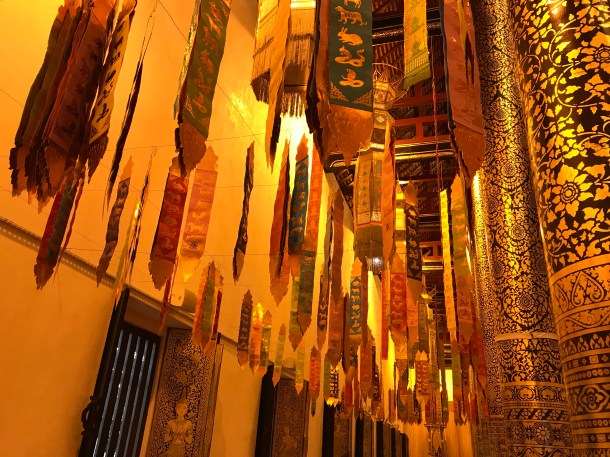These days it’s embarrassing to tell people I am from the U.S. During a time when my country separates children from their families at the border and locks them up in cages; when yet another police officer has killed another innocent black teenager, Antwon Rose, just a few minutes from where I live; when women’s reproductive freedoms are in serious danger of revocation with a new Supreme Court appointment; I am ashamed I have to say “U.S.” when asked where I am from. Right now, my country is enveloped in distrust, separation, and fear. When people assume I am from Canada, I am tempted not to correct them.
More than the small hit to my own ego identifying as an American abroad, I worry about the future of my country, my friends, and the people living in our borders. I worry that we might be afraid to learn from the diversity that can make our country whole.
Meanwhile, the world is watching. People know the U.S. is not a safe or fair place right now for people fleeing persecution, for women, for anyone who is considered different from “the norm.” As a result, my friends from around the world have no desire to live in the U.S. and some are scared to visit, one was even caught up in the panic of a mass shooting scare on a short vacation to the west coast of the country I call home. From a distance (and sometimes from up close) the U.S. can be a place where a fear of difference becomes ugly, hateful and deprives people of their humanity. I don’t think any of us want to live in a place like that.
I am reminded this week that diversity and difference have great power if we are open to be changed instead of holing up in fear. When we take the time to listen, it turns out we have a lot to learn from what we consider “different.”

My parents came to visit Thailand and Cambodia a couple of weeks ago for 12 days and some of the most memorable moments of the trip for me were hearing them reflect on how much the experience changed their perceptions of food, people, and the nations themselves. My dad said multiple times how different the reality was from what he learned as a kid. My mom got up early one morning in Cambodia and read about the role the U.S. played in Cambodia’s not too distant political past—it’s a history we don’t often learn about in the U.S. until we meet people who experienced it. Being there for my parents’ small revelations was like reliving my own from just a couple of months before.

From a distance, it is easy to have a singular view of a place, of its practices, and of people. But, if you’re open to it, when you get closer, you’ll find that there’s much more complexity than you could have imagined. Those are the moments we grow into better people. Watching Nanette by Hannah Gadsby on Netflix also reminded me of that tonight (highly recommend).
I want to live in country and in a world where we are open to trying new things and to being wrong, where we can learn from our differences, and where we live in love rather than fear. We have a responsibility to create opportunities for ourselves to become better, kinder people and to do the same for our families, communities, and nations. To that end, I recommit to my own learning. I cannot change what is happening in my country overnight, but I can take responsibility for myself.

I am also sometimes guilty of being embarrassed to be American when I’m abroad. I know that as soon as I tell them where I’m from, the inevitable questions about he-who-must-not-be-named come up (I really don’t like saying the name of our “president” these days). I often tell them I’m from California rather than the U.S. It’s true, after all. I’m a Californian first and foremost.
That being said, I think it’s important to show that Americans are not all what is being shown on the news. Opening a dialogue with people in other countries and showing that despite what they might think, there are 300 million people living in the United States and they are certainly not all the same. Tell them you also are worried about what’s going on. Tell them you are angry, upset, feeling helpless. Tell them you didn’t vote for any of this and that you’re doing everything in your personal power to stop these horrible things from happening. When you are kind, respectful, and thoughtful, it shows people that Americans are not what is being shown on the news. If we let them all believe we’re Canadians, it only perpetuates the stereotype that Americans are awful people and the only good ones are Canadians. And that’s simply not the truth.
Absolutely!! This is where I’ve settled with my internal debate as well. It reminds me to be thoughtful about the things I like about my home country and how I can share that with others while still leaving space to acknowledge that things are not perfect. Thanks for your thoughts on this!
Beautifully expressed Rachel. It is definitely sad to see what’s happening in the States. It’s great that you were able to share some time with your parents and reflect on how travel plays such a key role in learning and openness to new ideas, foods, cultures…